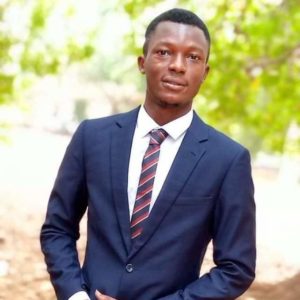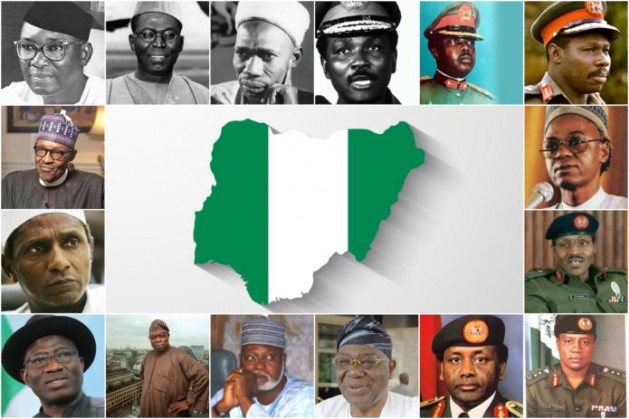One of the founding principles that Nigeria -as a country – transits on, is its national motto which says; “UNITY AND FAITH, PEACE AND PROGRESS”. As stated by Onyekachi Wambu in an online article in 2017, “National mottos or slogans reflect the dreams and aspirations of nations, as well as their fears and preoccupations”. What this implies is that ‘motto’ like basic principles or ideologies, is to a nation, what creed is to a religion. Hence, it is meant to be dutifully and purposefully pursued.

But a review of Nigeria’s system of governance since its independence in 1960 till date would reveal that the elements captured in its motto: Unity, Faith, Peace and Progress, have not being truly reflected or pursued by its past and current leaders.
Shortly after Nigeria’s independence, its Unity was questioned in a thirty months Biafra civil war. Ever since then, several policies have been enacted by successive government to ensure that Nigerians live as a united heterogeneous country embracing its diversity in religion, education, culture, ethnicity and worldview. One of these policies is the federal character commission.
Read Also: Can What Happened In Mali, Happen In Nigeria Of Today?
However, two of the major threats to Nigeria’s unity are Ethnicity and Religion, and they are more of a foundational problem than systemic. Many Nigerians have come to the conclusion that Nigeria was built on a faulty foundation in terms of Unity by our Colonial masters, The Great Britain. People of the Northern and Southern Protectorate were not consulted before they were amalgamated to become one in 1914. Consequently, more than a hundred years after, the problem of intolerance to their religious and ethnic differences still linger on.
In an article titled “ Can Nigeria be fixed?” (published September 8, 2020 in The Punch Newspaper), Azuka Onwuka succinctly analyzed the problem affecting Nigeria’s unity. In his words,
“There are non-negotiable issues Nigerians from different zones don’t joke with. They cannot compromise on these issues. Trying to make them accept certain issues that can run against their worldviews is like asking them to commit suicide. It is like forcing Iran and Iraq or India and Pakistan or Israel and Palestine into one country and making them run the same policies. Their worldviews will simply clash and ensure that they never Progress.”
This assertion by Onwuka is nothing but the true situation of Nigeria’s unity as a nation. The Southern and the Northern parts of Nigeria have different views and perception to almost everything that binds them together, and like the mathematical ‘parallel lines’, they are most likely not going to meet.
Away from Unity, Nigeria’s progress in terms of economy and human capital development is another thing of major concern. Nigeria was recently rated as the world headquarters of extreme poverty according to a report released by Brookings Institution in 2018.
The report read: “According to our projections, Nigeria has already overtaken India as the country with the largest number of extremely poor in early 2018, and the Democratic Republic of Congo could soon take over the number 2 spot.
“At the end of May 2018, our trajectories suggest that Nigeria had about 87 million people in extreme poverty, compared with India’s 73 million. What is more, extreme poverty in Nigeria is growing by six people every minute, while poverty in India continues to fall…”
The reasons for this rating cannot be far-fetched. Increase in unemployment rate especially among the youths, constant hike in the prices of essential commodities, incessant economic depression and resultant recession, non-people oriented economic policies and taxation which results in the unease of doing business thereby scaring away private and foreign investments, lack of seriousness in the move to diversify the economy, too much dependence on the oil sector are among several other factors can be adduced to be responsible for this poverty index rating.
For the past eleven years now, peace has being a relatively scarce commodity in Nigeria hi as a whole. Insurgency and banditry ravaging lives and properties in the far Northwestern and Northeastern states, militia and ethnic related clashes between farmers and herders in North Central state, election-related Crises, kidnapping and secession agitations in Southeastern and southwestern states and militancy in South-South states.
For the past six decades of its independence, Nigeria seems to be on a retrogressive trajectory. Everything that once made us the pride and giant of Africa keeps loosing and depreciating in its value. From our currency (Naira), educational sector, civil service, foreign policies, economic policies, our once prosperous and booming agricultural sector down to our socio-political activism by economic advocacy. Corruption, malpractices, mediocrity and cronyism and ethno-religious affiliations are now the requirements for appointments, employment and admission into any Of Nigeria’s public institutions.
With all these social vices and challenges bedeviling our dear country, how do our leaders expect us the citizens to have ‘Faith’ in the prospect of a better Nigeria? How can we be ‘united’ when from the onset we were divided along religious and Ethnicity lines? How can we have ‘Peace’ when Insecurity is threatening us from the four cardinal points of our six Geo-political zones? How can we ‘Progress’ when old leaders keep recycling themselves to power with outdated economic and political policies in this digital age of technology?
Nigeria is certainly not living not up its founding principles, our leaders should go back to the drawing board to redraft new principles and ideologies for a better Nigeria.
???????? ?????? is a student of Mass Communication. He is a budding journalist with interests in investigative journalism and new media studies. He is also an aspiring writer. He writes from Lagos via osahonkingsleyokonoboh@gmail.com
Twitter: @KingsleyOsahon1
AFRICA TODAY NEWS, NEW YORK

